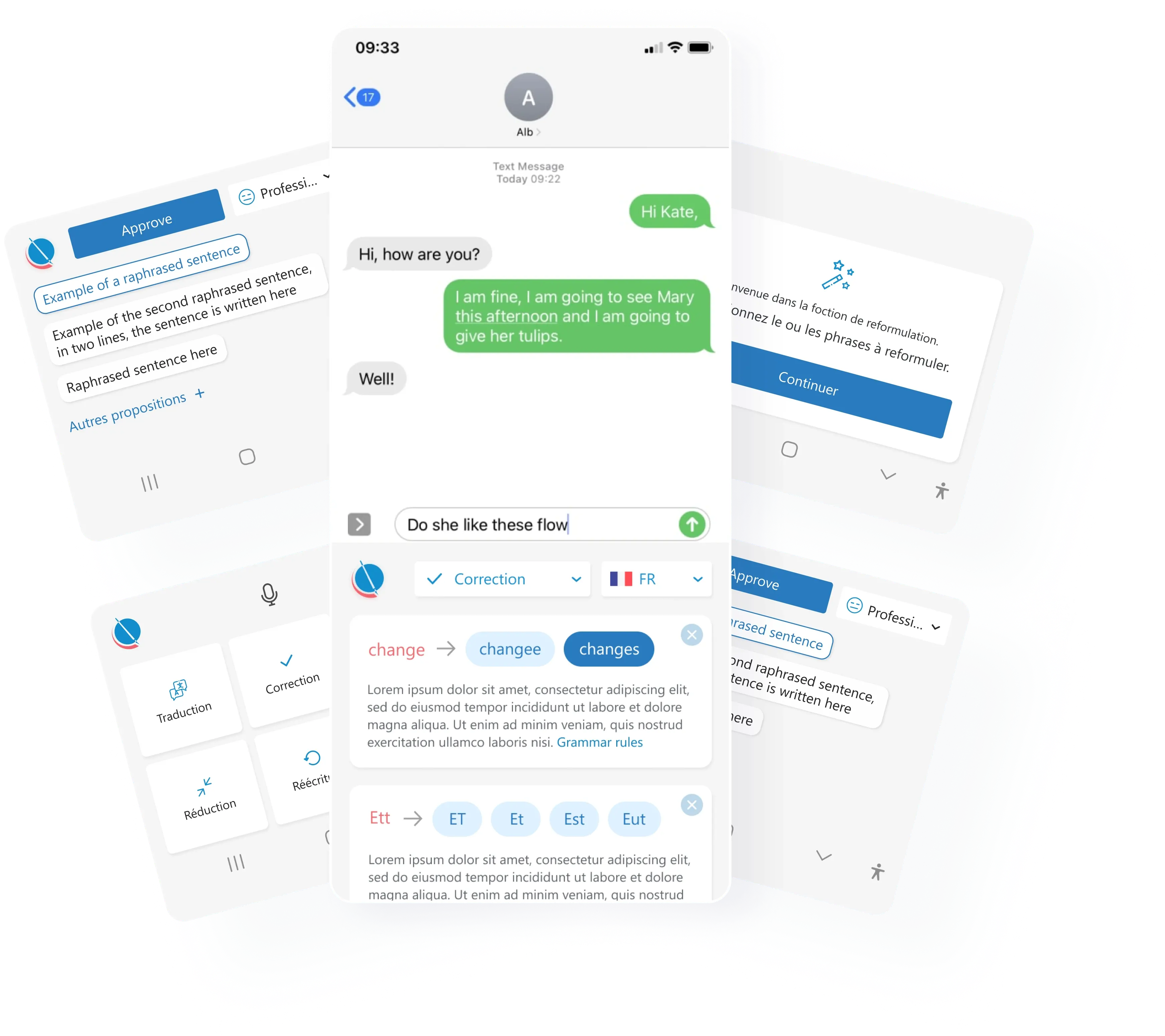The growing recruitment challenges in the education industry require a tech-driven, innovative solution. Could the answer lie in artificial intelligence? AI brings myriad capabilities to the table, from automating job postings to enhancing candidate engagement, which could change the face of recruitment in education.
As the demand for AI-based solutions in recruiting continues to grow, it is vital to understand how such a platform can be developed and implemented effectively. This article provides a blueprint for creating an AI recruiting platform for education.
The Need for AI in Education Recruitment
Education recruitment is a critical part of shaping successful institutions. However, the current process is often complicated, and inefficient. Reading through heaps of applications, filtering out the most qualified candidates, and scheduling interviews – all these tasks require a significant amount of time.
It is where AI can step in and offer an effective solution. It can speed up and streamline the education recruitment process. It can streamline tasks such as candidate sourcing and reduce the workload of human resources teams. The technology can also enhance decision-making by using data to identify the best candidates.
Understanding AI and Its Capabilities
Artificial Intelligence is focused on creating machines that can simulate human intelligence.
Here are four primary capabilities of AI that are relevant:
- Automated Processes. One of the most valuable capabilities is automation. For instance, it can automate the distribution of job postings across multiple platforms, enabling institutions to reach a broader pool of potential applicants. It saves significant time.
- Data Analysis. AI excels at analyzing data quickly and accurately. In the context of recruitment, this can involve scanning through countless resumes and applications and identifying the best candidates based on specified criteria. AI can also predict candidate behavior, which helps assess their potential fit within the institution.
- Machine Learning. ML involves algorithms that improve automatically through experience. Over time, these algorithms can 'learn' to better match candidates with job vacancies, improving the effectiveness of the recruitment process.
- Chatbots and Natural Language Processing (NLP). AI-powered chatbots can engage with applicants in real-time, answer queries, and provide instant feedback. It frees up human resources staff to focus on more complex tasks.
Understanding these capabilities of AI helps illustrate the transformative potential it holds for the recruitment process in the education sector. By leveraging it, institutions can streamline operations and make data-driven decisions.
Discover the key steps to creating a successful e-learning platform
Key Features of an AI Recruiting Platform for Education
An AI-based recruiting platform offers an array of crucial features that help to streamline and enhance the recruitment process in the education sector.
Below, we will provide some of these essential functionalities.
Job posting automation
The platform can automate the distribution of job postings across various job boards, social media platforms, and academic forums. It not only increases the visibility of job postings but also saves considerable time spent manually uploading them.
Candidate sourcing
AI can scour multiple databases, including job sites, social media, and professional networks, to find the best candidates. It can evaluate and rank potential candidates based on experience and skills. This feature aids in reaching those people who are not actively looking for a job but are an excellent fit for a role.
Screening and shortlisting
One of the most labor-intensive aspects of recruitment is screening applications. An AI-driven platform can sift through hundreds, even thousands, of applications and identify the most fitting candidates based on predefined parameters. It eliminates bias and reduces the likelihood of overlooking a promising candidate.
Interview scheduling
AI can take over the cumbersome process of scheduling interviews. It can coordinate between the recruiters and candidates to find suitable slots, thus saving time and reducing confusion due to timezone differences or scheduling conflicts.
Candidate engagement
AI-powered chatbots can be deployed to maintain continuous engagement with candidates. They can answer questions as well as provide updates on application status. It enhances the candidate experience and ensures that applicants stay connected throughout the recruitment process.
These key features underscore how an AI-based recruiting platform for education can be a game-changer for the education industry, enhancing efficiency, accuracy, and engagement in the recruitment process.
Case Study: Scribens

Privacy and Ethical Considerations
While AI provides groundbreaking solutions in recruitment, it also raises significant privacy and ethical considerations that must be addressed.
Data privacy is a significant concern. AI recruitment platforms gather much personal information about candidates – from basic contact details to sensitive data like employment history and academic records. Ensuring this data remains secure and is used responsibly is essential. Compliance with privacy regulations, like GDPR, is crucial. Also, candidates must be informed about what data is being collected and how it will be used and stored.
Bias in AI decision-making is another ethical concern. Although AI can eliminate human biases, it can also introduce new ones. It is usually because AI systems learn from existing data, which may contain biased patterns. For example, if an institution has historically hired individuals from specific universities, an AI system could learn to favor applicants from these institutions. Strategies to mitigate AI bias include using diverse training data and auditing AI systems to check for biased outcomes.
Steps to Developing an AI-Based Recruiting Platform for Education
Creating an AI-based recruitment platform is a systematic process. This journey involves several steps, each crucial in building an effective platform. Let's delve into them in more detail.
Needs assessment
The development of an AI-based recruiting platform begins with a needs assessment. This step involves identifying the specific requirements of the educational institution, including the challenges faced during recruitment, objectives to be met, and the desired functionalities of the platform.
An accurate needs assessment forms the basis of the development process, ensuring the end product aligns with the institution's goals. It also aids in setting clear expectations and helps formulate an effective implementation plan.
Data collection and management
Once the needs are defined, the next step involves collecting, storing, and managing the necessary data to power the AI system. It could involve a range of data points, such as candidate resumes, job descriptions, and past recruitment data. Proper management of this data is paramount for the functioning of the AI platform.
Institutions must ensure they handle data securely, respect privacy laws, and maintain transparency with candidates about their data usage. It will build trust and foster a more effective recruitment process.
Algorithm development and training
The heart of the AI-based recruiting platform is its algorithm. Developing an algorithm that can interpret the collected data and make predictions or decisions is crucial.
Machine learning techniques are employed at this stage, where the algorithm is trained using the collected data. The algorithm learns from the data, improving its capabilities and predictions. Ensuring the algorithm is trained with diverse and unbiased data is crucial to avoid perpetuating existing biases.
Implementation
With the algorithm developed and trained, the next stage is implementation. It involves integrating it into the recruitment platform or designing a new one. The system should be efficient, ensuring a smooth transition for recruiters and HR personnel. Providing adequate training and support for staff to make the most of the new system is also essential.
Let’s bring your software ideas to life
Testing and iteration
The final step involves extensive testing on the AI-based recruiting platform to validate its performance and alignment with the defined objectives. Users can provide their feedback, leading to necessary modifications.
As AI evolves, regular iterations and improvements become vital. Institutions must commit to continuous testing, refining, and upgrading the system to ensure their AI-based recruiting platform stays effective and abreast of the latest advancements.
The Future of AI in Education Recruitment
The role of AI in education recruitment is set to expand and evolve, marked by several emerging trends and future developments.
One trend is predictive analytics. AI can predict future hiring needs by analyzing past hiring data, enabling educational institutions to be proactive and strategic in recruiting. Predictive analytics can also forecast which candidates will succeed in a particular role, further optimizing recruitment.
Another development is personalized candidate engagement. AI systems could offer tailored guidance to candidates throughout the application process, improving their experience and increasing their likelihood of success.
We will see advancements in bias detection algorithms. These AI systems will eliminate not only existing biases but also be able to identify and rectify any unintended biases introduced by AI itself.
Conclusion
AI revolutionizes educational recruitment by offering remarkable benefits such as pinpointing high-quality candidates, engaging interviews, and sustaining candidate engagement. However, addressing privacy and ethical considerations and adopting a systematic approach is fundamental to developing a successful AI-based recruitment platform. As the field promises more advancements, embracing AI could redefine education.
Ready to harness the power of AI? Our team of expert AI developers is at your disposal. Contact us to design an AI recruitment solution tailored to your needs.

Our team is dedicated to delivering high-quality services and achieving results that exceed clients' expectations. Let’s discuss how we can help your business succeed.



SHARE: